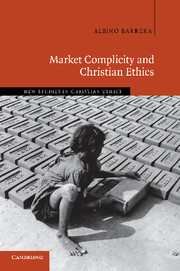Introduction
Published online by Cambridge University Press: 16 May 2011
Summary
Are we morally responsible for the distant harms spawned by our market transactions? If so, what are the grounds for these non-contractual obligations? How strong are their claims and what are their limits?
For all its genuine benefits, the market, unfortunately, also magnifies the harmful ripple effects of economic activity. In fostering specialization and division of labor, the market gives us a much wider selection of goods and services than would have otherwise been the case, but it also makes us unwitting collaborators in the wrongdoing of others. We inadvertently facilitate the misdeeds of unscrupulous market participants or perpetrate collective wrongs.
For example, the higher returns of investors in tobacco stocks come at the expense of the premature death of millions, especially in the developing world where tobacco firms have taken advantage of lax regulations and non-existent health education to promote smoking aggressively. US chicken farmers and livestock owners heavily use antibiotics in their feeds for better animal growth, but the overuse of antimicrobials has increasingly rendered lifesaving antibiotics ineffective against bacteria that have mutated with a stronger resistance to these drugs. The market for ivory objets d'art and jewelry makes it even more difficult to save endangered elephant herds from being decimated further by poachers. Hedge funds invest in commodities like oil, but their speculative trading causes greater volatility and unwarranted price increases that drive nations into deeper poverty.
- Type
- Chapter
- Information
- Market Complicity and Christian Ethics , pp. 1 - 8Publisher: Cambridge University PressPrint publication year: 2011



